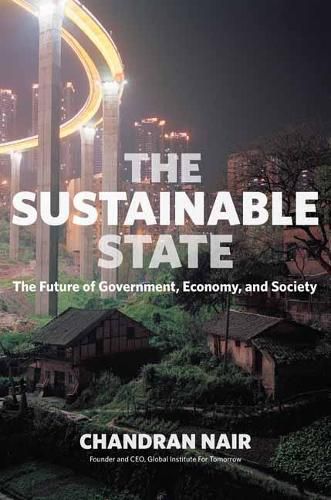Readings Newsletter
Become a Readings Member to make your shopping experience even easier.
Sign in or sign up for free!
You’re not far away from qualifying for FREE standard shipping within Australia
You’ve qualified for FREE standard shipping within Australia
The cart is loading…






The Western free-market model has been an environmental and social disaster for the developing world, says businessman and think-tank founder Chandran Nair. He makes the controversial case that only a strong central state can provide truly sustainable and equitable development.
For decades, the Western argument has been that the unfettered free market is the best vehicle for economic development and social progress. Instead, this sure-to-be-controversial book argues that a strong state with a willingness to manage the economy within resource constraints is central to the challenge of sustainable development. Only a state that can and will exert effective governance can place fair and reasonable limits on resource consumption (which is completely unrestrained in the free-market model), manage the expectations of its population, preserve ecological integrity, and ensure universal access to basic needs. This will mean rethinking the meaning of concepts like prosperity,
freedom, and rights, and whether Western-style democracy is the optimal form of government. This may make some in the developed world uncomfortable, but what Nair offers is a model suited to the realities of the developing world.
$9.00 standard shipping within Australia
FREE standard shipping within Australia for orders over $100.00
Express & International shipping calculated at checkout
Stock availability can be subject to change without notice. We recommend calling the shop or contacting our online team to check availability of low stock items. Please see our Shopping Online page for more details.
The Western free-market model has been an environmental and social disaster for the developing world, says businessman and think-tank founder Chandran Nair. He makes the controversial case that only a strong central state can provide truly sustainable and equitable development.
For decades, the Western argument has been that the unfettered free market is the best vehicle for economic development and social progress. Instead, this sure-to-be-controversial book argues that a strong state with a willingness to manage the economy within resource constraints is central to the challenge of sustainable development. Only a state that can and will exert effective governance can place fair and reasonable limits on resource consumption (which is completely unrestrained in the free-market model), manage the expectations of its population, preserve ecological integrity, and ensure universal access to basic needs. This will mean rethinking the meaning of concepts like prosperity,
freedom, and rights, and whether Western-style democracy is the optimal form of government. This may make some in the developed world uncomfortable, but what Nair offers is a model suited to the realities of the developing world.